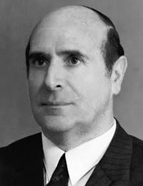

Although his work and interests spanned other literatures, cultures, and historical periods — including subjects such as philology, linguistics, comparative literature, and the sociology of literature — Jacinto do Prado Coelho consistently prioritised Portuguese literature from the 18th to the 20th centuries, often revisiting the authors featured in his major works. This is evident from 1965 onwards, with the publication of the Works of Camilo Castelo Branco, the organisation of the Complete Works of Teixeira de Pascoais (which remained unfinished due to circumstances beyond his control), and several editions of Pessoa's unpublished works, including Livro do Desassossego [The Book of Disquiet] in 1982.
He planned and led the Dicionário das Literaturas Portuguesa, Galega e Brasileira [Dictionary of Portuguese, Galician and Brazilian Literatures], which was initially published in fascicles in 1956 and later as a complete volume in 1960. Aiming to achieve "a more perfect awareness of the cultural unity among the three Portuguese-speaking peoples," this pioneering work adopted a distinctly historico -literary approach. It was later re-edited and expanded to include numerous entries by him. In the second two-volume edition, published in 1971, the scope of this essential work was broadened to include literary stylistics and increased attention to Brazilian literature. Following the Carnation Revolution on 25 April 1974, Jacinto do Prado Coelho embarked on a comprehensive revision of the dictionary, inviting new collaborators to contribute to the project. Although he was unable to complete it before his death in 1984, the work was well advanced. After a few delays, it was completed in the early 21st century with the release of three updated volumes, which notably included Portuguese-speaking African literature, with Ernesto Rodrigues coordinating Portuguese literature and Pires Laranjeira overseeing Brazilian and African literatures.
